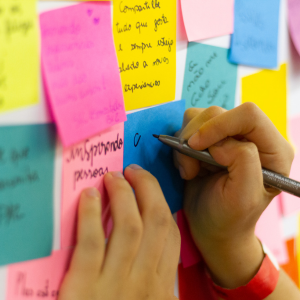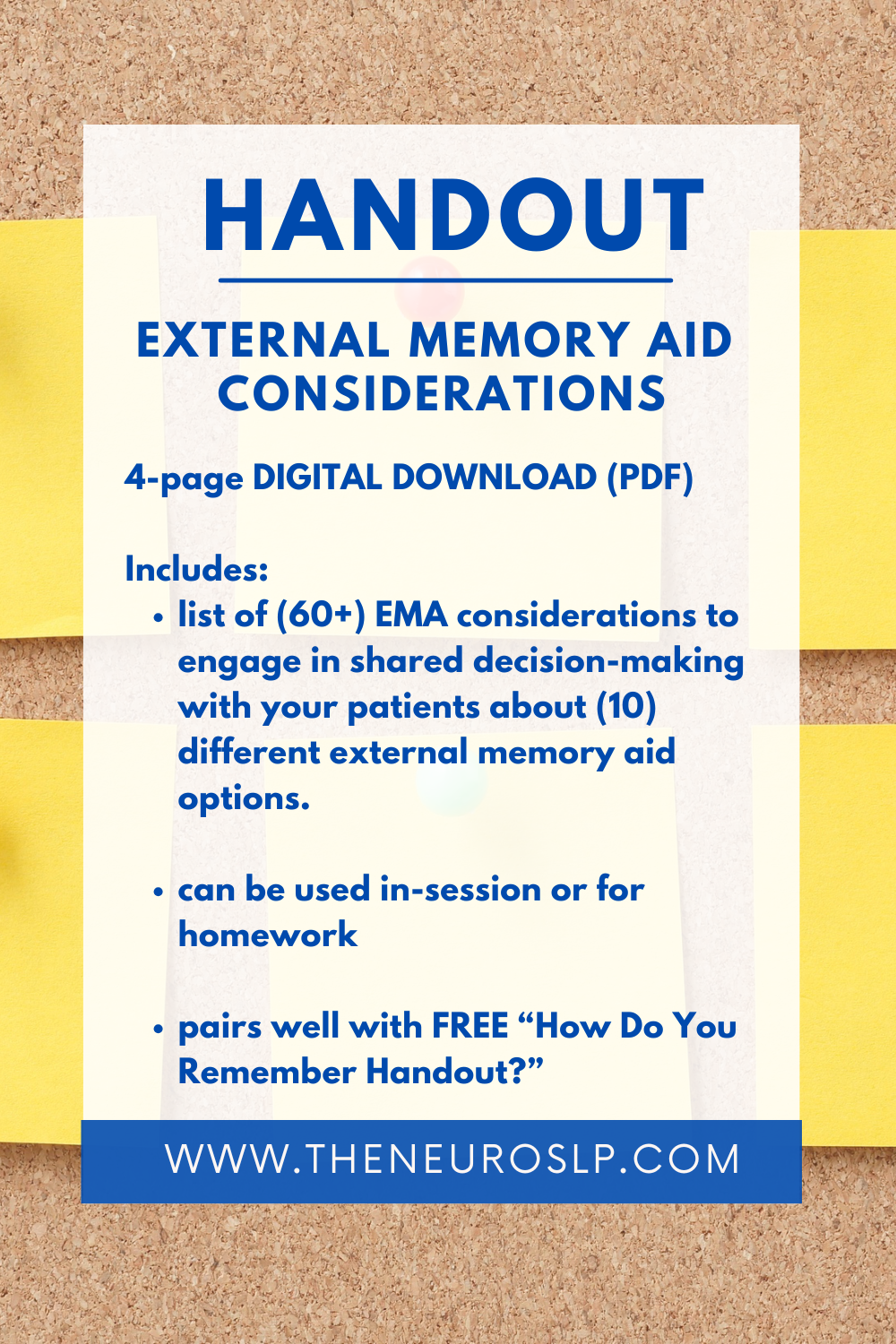If you are an SLP who works with patients with memory challenges, you know that one of our responsibilities is to help patients with their EMAs--- external memory aids.
We review the purpose/benefits of EMAs and the wide range of types of EMAs. We also target important metacognitive skills so patient's can select the best EMAs for them and use them optimally. In more severe cases, it may even be us who is selecting the best EMA for the patients. Everything needs to be taken into consideration when making these decisions, including but not limited to:
patient living situations
patient medical status
patient priorities
patient daily activities,
patient level of independence
patient preferences
patient familiarity with EMAs
patient willingness to learn new aids
patient comfort with technology
To get a full list of considerations when selecting and using common EMAs, CLICK HERE for my 4 page PDF. It includes over 60 questions to help determine which of the (10) external memory aids listed are best for the patient.
*Pairs well with my FREE memory handout “How Do You Remember?” where I list several common EMAs.
That’s it for now. As always, have some great therapy sessions!
-Dana (The Neuro SLP)
Relevant Research:
Lanzi, A., & Bourgeois, M. S. (2020). Structured External Memory Aid Treatment for Mild Cognitive Impairment. American journal of speech-language pathology, 29(1S), 474–484. https://doi.org/10.1044/2019_AJSLP-CAC48-18-0209
Lanzi, A. M., Saylor, A. K., Dedrick, R. F., Bourgeois, M. S., & Cohen, M. L. (2023). The Functional External Memory Aid Tool Version 2.0: A How-To Clinical Guide. American journal of speech-language pathology, 32(1), 96–106. https://doi.org/10.1044/2022_AJSLP-22-00178
Lanzi, A., Wallace, S. E., & Bourgeois, M. S. (2018). External Memory Aid Preferences of Individuals with Mild Memory Impairments. Seminars in speech and language, 39(3), 211–222. https://doi.org/10.1055/s-0038-1660780
Spencer, K. A., Paul, J., Brown, K. A., Ellerbrock, T., & Sohlberg, M. M. (2020). Cognitive Rehabilitation for Individuals With Parkinson's Disease: Developing and Piloting an External Aids Treatment Program. American journal of speech-language pathology, 29(1), 1–19. https://doi.org/10.1044/2019_AJSLP-19-0078




Comments ()